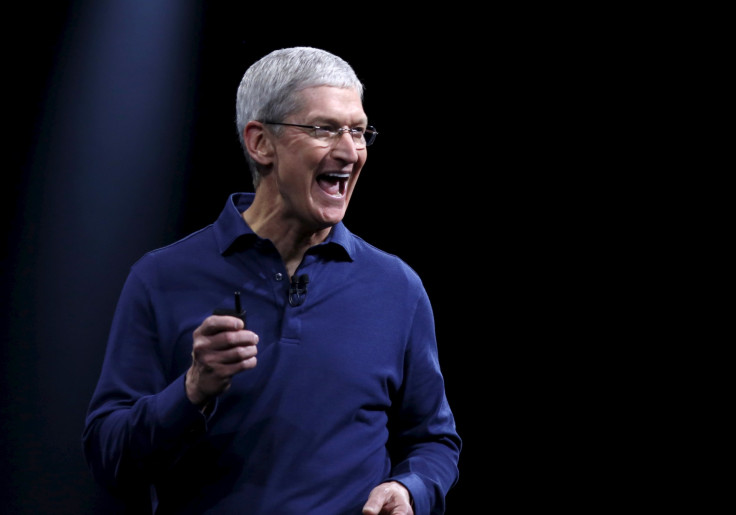Despite Big Moves By Alibaba, Maersk, US Remains Stock Buyback King

Recent share repurchase announcements from overseas companies seem cut from the same cloth as U.S. companies currently engaged in a buyback craze. Alibaba, the Chinese online retailer, tacked a $4 billion buyback onto its disappointing earnings report Wednesday. Meanwhile, Denmark's shipping giant Maersk announced Thursday a $1 billion buyback, even as profits fell 50 percent from the year before.
Though these plans don’t hold a candle to the largest repurchases announced stateside in 2015 -- including $50 billion each from Apple and General Electric, and an $18 billion program at Home Depot -- they hint at a growing appetite for buybacks overseas. But how strong is that trend?
Although the long-term trend has been a steady rise in buybacks globally, for Europe and Asia, it’s “not on the same scale” as the U.S., says William Lazonick, a professor of economics at the University of Massachusetts Lowell and a scholar of shareholder rewards.
According to data compiled for International Business Times by S&P Capital IQ, buyback activity in Europe has never recovered from its pre-crisis peak in 2007. In the Asia-Pacific region, repurchases picked up in 2014 but still haven't surged to the extent American buybacks have.
For reasons both economic and political, the U.S. remains buyback king.
In absolute terms, the U.S. far exceeds the rest of the world in the frequency and size of its buybacks. Between 1998 and 2010, American companies announced roughly 11,000 repurchase programs. In that same time, the rest of the world combined rolled out just 9,000 buybacks. American companies have spent some $7 trillion buying up their own stock since 2004.
But according to Theo Vermaelen, a professor of finance at INSEAD business school and a co-author of the study that compiled those numbers, that doesn’t mean foreign companies are terribly different in their aims.
“The motivations for buybacks are roughly the same,” says Vermaelen. “It’s the feeling that they’re committed to shareholder value: If you have excess cash it’s better to give it back than to waste it.”
When companies buy back their own stock, the outstanding share count decreases, often giving share prices a short-term pop. Thus shareholders tend to clamor for buybacks, which also boost metrics like earnings per share that are closely watched on Wall Street. As in the U.S., funds that target international companies that have bought their own shares far outpace their benchmarks.
European companies, however, have long been reticent to dole out cash to shareholders through buybacks. It was only in the late 1990s that buybacks were permitted throughout Europe. They have been sanctioned in the U.S. since 1982.
But it’s cultural differences and economic structures that make Europe particularly averse to buybacks, says Lazonick. In Germany, for instance, workers have a seat on large companies’ governing boards, which tends to shift their overall corporate priorities.
“They’re not going to do buybacks just to prop up the stock price,” Lazonick explains. “There’s a set of social norms that works against this sort of thing.”
Despite a ramp-up in buybacks Asia in 2014, that region also lags behind the U.S. in the amount of cash companies spend gobbling up their own shares. The outlier is Japan, which has become an international leader in buybacks outside of the U.S. Japanese buyback activity in June was 41 percent higher than the year prior, according to Tokyo bank Nomura.
And some expect Europe to pick up soon as well. When the European Central Bank in March began a round of quantitative easing -- buying up securities from large institutions to spur investment -- some in the U.S. hoped a wave of stock buybacks would follow the infusion of cash into the economy. Citigroup economists advised executives to take the opportunity to reward shareholders with share repurchases.
“CEOs: This is an opportunity to use record cheap debt-funding to retire relatively expensive equity funding,” the strategists wrote in a note. “Use excess cash or debt to buy equity."
If American buyback trends take hold abroad, it would come just as the practice becomes a political subject in the U.S. Critics worry that executives paid through stock options have an incentive to superficially inflate stock prices at the expense of investing in research or boosting workers’ wages. Hillary Clinton and Sen. Elizabeth Warren, D-Mass., for example, have cited stock buybacks as drivers of inequality and proposed measures to rein them in.
© Copyright IBTimes 2024. All rights reserved.






















